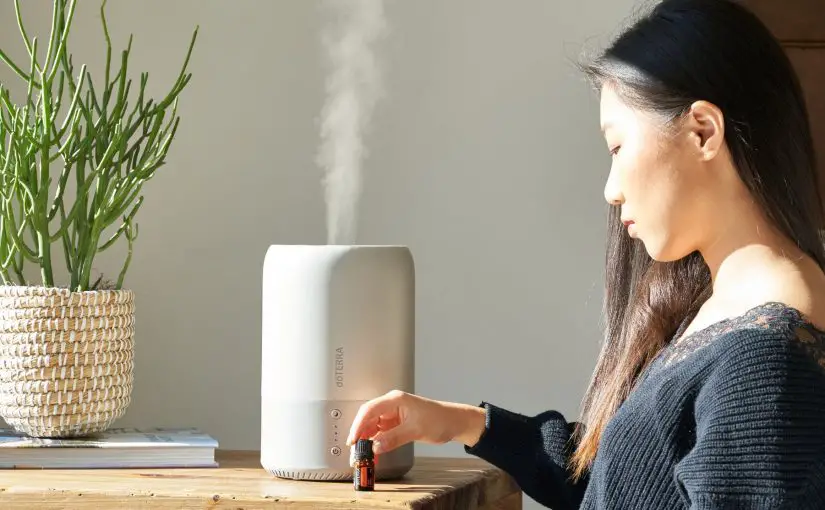Nasal congestion is widespread, and can occur during sinus infections such as the flu and the common cold. Some symptoms include sinus pain, mucus buildup, a stuffy or runny nose, swollen nasal tissue or sinus pressure.
While medicines are recommended for such infections, taking extra precautionary measures to tone down the discomfort from congestion is also recommended.
This is where the question occurs; do humidifiers help with congestion?
The short answer is yes, they do.
Humidifiers turn water from its liquid form into vapor. This vapor is then released into the air to increase the humidity, which further helps in loosening dried-up mucus secretion in your nasal passages.
You can then easily blow your nose, getting rid of all the mucus and giving you maximum relief.
Many people undergo home treatments to relieve congestion, and using humidifiers is one of these methods. All types of humidifiers can help with congestion, but first, let’s dive into the various types of humidifiers and how they can help.
Table of Contents
 Warm-mist Humidifier
Warm-mist Humidifier
Whether shopping for a car, a commercial hand dryer or a PC, you always look through the different models and their functions. The same is true for humidifiers.
The warm-mist humidifier comes with a heating system used to boil water internally. Once heated, the nozzle releases water in the form of steam.
Using warm-mist humidifiers should be avoided in the presence of children or particularly energetic pets. If the humidifier is knocked over, it can cause severe burns, so it must be handled carefully, even if by yourself.
Regardless, they are still highly effective against congestion and fully serve their purpose. Additionally, they can come with compartments to add calming essential oil or vapor rub to be released into the air. This will aid more soothing relief.
Since warm-mist humidifiers keep the water at a boiling temperature for as long as they function, they also use a lot of energy.
Vaporizer Humidifier
For smaller bedrooms, using a vapor humidifier is recommended. These are very similar in function and effectiveness to warm-mist humidifiers, minus the ability to remove the tank. Despite this, they are just as good as other humidifiers in regards to providing relief.
The process is the same as a warm-mist humidifier. Water is boiled to create and release vapor into the air to be inhaled, helping to clear congestion.
Similarly, these also must be carefully handled and kept away from pets and children for safety. The boiling process that vaporizers use helps get rid of all the pollutants that may be present in the water. This way, when vapor occurs, it is of good, clean quality that is safe for you to inhale.
Using only vaporizer humidifiers will not be as effective in larger rooms due to bigger spaces needing more ventilation. The vapor needs to circulate in the room so you can inhale them to clear congestion.
Cool-mist Humidifier
A cool-mist humidifier is an ideal option, since it offers the same relief as other humidifiers whilst being safe to use around children or pets. You can even find models that are explicitly designed for infants and children.
As the name suggests, the cool-mist humidifier can turn room temperature or cool water into a mist, providing relaxing, therapeutic relief.
The distinguishing difference between warm-mist and cool-mist humidifiers, despite the temperature, is that no fan is present in warm-mist models, as the boiling effect releases energy, forcing the vapor out of the machine.
Naturally, the cool-mist model does require a fan, which may result in a loud noise when it is on. However, this is a small price to pay regarding the effectiveness, low energy use and safety it offers.
The cool mist humidifier further comes in two forms. Namely, evaporative humidifiers and impeller humidifiers. These vary in the ways they release mist into the air.
Evaporative humidifiers can release the relative humidity inside your home with a fan. The water is pushed into the air passing through an absorbent material, creating vapor.
Impeller humidifiers use rotating disks that move at a high speed. The disk is responsible for rotating the water around, turning them into droplets that are released into the air. They are comparatively safer than evaporative humidifiers since they do not use fans.
Ultrasonic Humidifier
Ultrasonic humidifiers work by creating small waves using ultrasonic. These waves break down the water, creating small vapor that are released into the air as a cool soothing mist. This model of humidifier is both very quiet and low maintenance.
Since the sound of a fan from a cool-mist humidifier may be irritating, especially when already congested, an ultrasonic humidifier can provide more quiet relief. It is one of the best and most recommended options due to this reason.
Since ultrasonic humidifiers have the same function as cool-mist and warm-mist humidifiers whilst being quiet and safe, people tend to prefer this option. You can sleep peacefully at night while enjoying the luxury of having a safe vapor released into the air, without the worry of children or pets getting burnt.
 The bottom line
The bottom line
Ultrasonic humidifiers take the prize as being the safest, fully efficient and quietest option on the market. Humidifiers that produce sound may not seem like such an inconvenience in the daytime, but quiet noises often sound louder at night.
There is also the concern of using vaporizers and warm-mist humidifiers around children or pets. In contrast, ultrasonic humidifiers have all the benefits of the other options, whilst still being safe to use around your family and pets.
Ultrasonic humidifiers also have a far lower noise level than other options. There are other aspects to consider, like having an automatic humidifier so that it can turn off when not in use to save electricity and prevent mold.
We hope this article helped enlighten you about how humidifiers help relieve congestion and about the different types that will be best suited for you. Thank you for reading!


